The US-China tech war is set to escalate
The world’s richest person visited China in late May, for the first time in three years, to renew high-level relationships in the country that has contributed handsomely to his dizzying fortune. Elon Musk also contributed to ongoing debates about several issues reshaping the global economy.
Can the US and China learn to get along? Or will their tech war intensify? Are Chinese electric cars going to wipe out their Western rivals? And what’s China doing to increase or control the threat of artificial intelligence (AI)? Send your answers on a postcard – and keep reading to learn more.
Cruising Beijing in a Model X, the Tesla CEO met a trio of Chinese ministers: foreign, commerce and industry. He emphasised Tesla’s stance against “decoupling and breaking the chain”, according to state media, and compared US-China interests to conjoined twins.
But Musk didn’t score a meeting with Premier Li Qiang, whose predecessor once offered Musk a Chinese green card. While Musk and his cars remain popular in China, the country’s own electric vehicle (EV) sector now carries serious weight of its own, as China does in many other technologies.
Coming to a showroom near you
The dramatic development of Chinese EVs in recent years is now achieving global impact. New brands head to showrooms worldwide. After relying for decades on countless, low-cost, made-in-China items, Western consumers will increasingly make their first major purchase of a Chinese brand. And the price tag may still be a major draw.
The Shanghai Auto Show in April featured major local players including pioneer BYD, which Musk once laughed off, but now outsells Tesla (although its numbers include hybrid cars and plug-in hybrids). BYD aims to solve the price problem for the world, with its new Seagull boasting a battery range of more than 300km, and a starting price (just over $11,000) that’s a quarter of the price of most EVs in Europe Chinese EVs are packed with electronic, lifestyle innovations, which has helped them steal a march on traditional, once dominant Western brands.
Carmakers are locked in a Darwinian fight for survival in China. Only a handful of EV-focused winners will stay afloat, predicted the FT’s Edward White. This year will be the first in which Chinese brands outsell foreign cars in China. And boardrooms worldwide need to consider not only survival in China, but the existential battle they’ll soon face at home, he warned.
Containers loaded with cheap, high-tech Chinese EVs are being shipped from China’s ports at such a rate that China is poised to overtake Japan as the world’s biggest auto exporter in 2023. Even as the US seeks to wean itself off reliance on Chinese factories, it’s nearly “impossible” for the US to manufacture EV batteries without China, concluded a new report by Columbia University.
In Beijing, Musk made time to dine (16 courses) with the chairman of Chinese battery supplier CATL, the global leader. BYD has just raced past LG Energy Solution as the world’s second-largest EV battery producer, with BYD and CATL now controlling a combined 52% of the global market.
China’s EV juggernaut is a warning for the West, agreed the Wall Street Journal’s Greg Ip. China is in contention to lead the world’s most lucrative and prestigious consumer goods market, thanks to “a unique combination of industrial policy, protectionism and homegrown competitive dynamism”.
What about other tech sectors, notably AI?
China’s EV success doesn’t necessarily translate to other sectors “where industrial policy matters less and creativity, privacy and deeply woven technological capability – such as software, cloud computing and semiconductors – matter more,” wrote Ip.
Semiconductors are central to so much of modern life, but their potential to support China’s military modernisation, and even weapons of mass destruction, is used by the Biden administration to limit China’s access to advanced computer chips and chip-making equipment.
Tech War
One key element of the US-China tech war is forbidding the sale to China of advanced graphics processing units (GPUs), needed to train large language model (LLM) AI programmes. The US thereby hopes to impair China’s ambition to become a globally leading AI power.
“I don’t think ever in the history of human endeavour has there been as fundamental a potential technological change as is presented by artificial intelligence,” Biden said on June 8. “It is staggering.” He and British Prime Minister Rishi Sunak singled out China and “disruptive technologies” as new challenges to international stability.
In Beijing, Musk said he “had some very productive discussions on artificial intelligence risks, and the need for some oversight and regulation…And my understanding from those conversations is that China will be initiating AI regulation in China.”
An AI frenzy continues to sweep China as companies search for their own ChatGPT. Money is not an object as investors big and small rush into chatbot technology, wrote Nikkei’s Cissy Zhou. But Chinese AI development still lags behind its US counterparts, wrote three analysts in Foreign Affairs this month, as Chinese AI systems, particularly LLMs, heavily rely on American research and technology.
Biden’s tech war aims to keep China well behind the US. Many Chinese investors believe a combination of generative AI tools and consumer technology will lead to lucrative investment opportunities, just as in the US, even though Baidu’s Ernie is less impressive than ChatGPT, its obvious inspiration, wrote Henny Sender for Nikkei. “This may be wishful thinking,” she warned.
Besides AI, some investors are switching into “hard tech” startups in areas including biotechnology, new energy, quantum computing, chips and robotics. Chinese industrial robot manufacturers are marching into domestic factories, and gearing up to challenge the long-established dominance of global giants, reported Caixin. Chinese companies are also developing homegrown surgical robots to challenge the dominance of US-based Intuitive Surgical’s da Vinci systems.
The Beijing boot camp?
While Musk appears publicly happy with his China exposure, other Western firms may increasingly consider China a tough but necessary “fitness centre”, including auto makers who must stay close to the most sophisticated customers and suppliers. Even as conditions become steadily more difficult, Western multinationals “have to be there. It keeps you fit,” Jörg Wuttke, former chair of the European Union Chamber of Commerce in China, told the Journal.
Related Articles:
US China Relations: Diplomats Meet – And Talk Past Each Other
US China Relations: Biden Assembles United Front Against Beijing

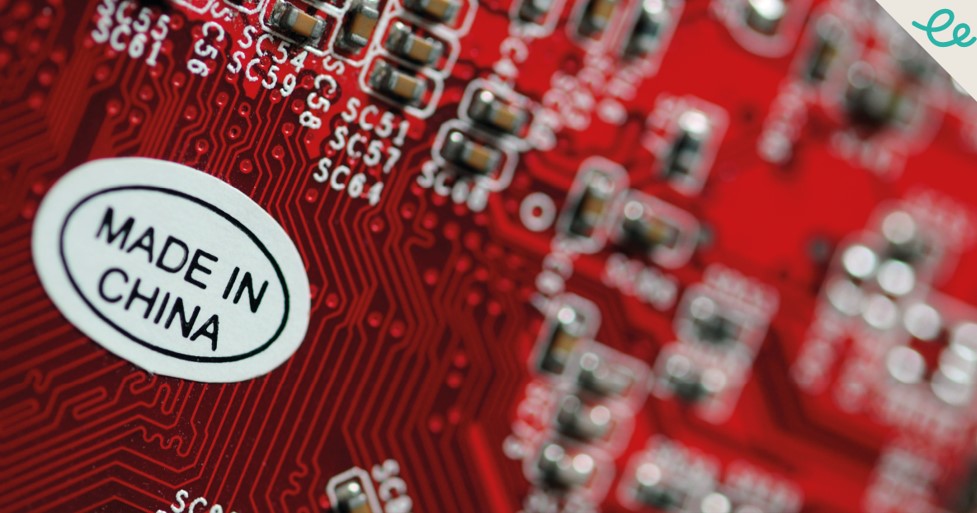
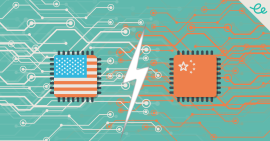
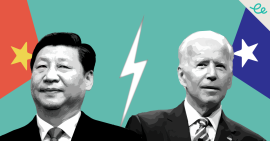
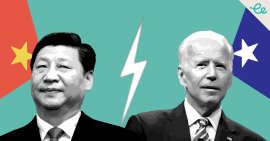

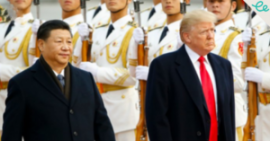


Comments are closed.